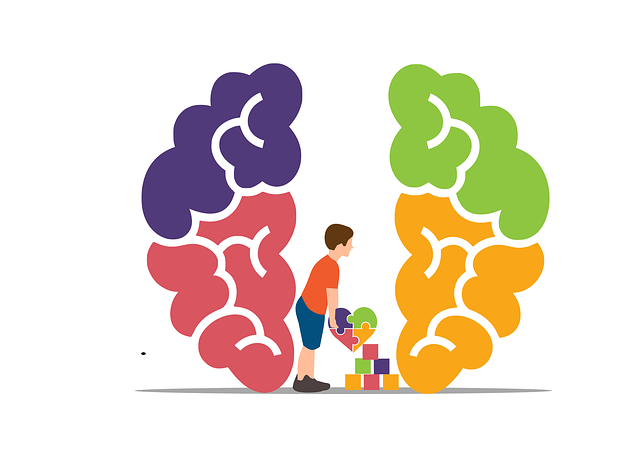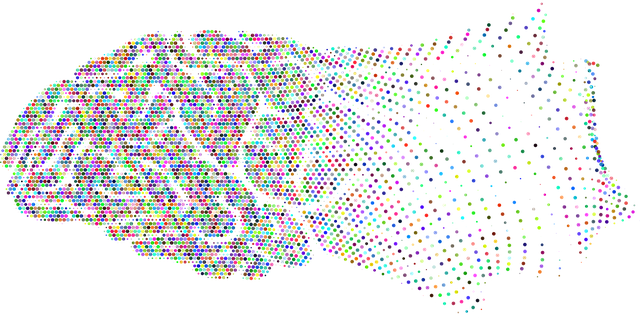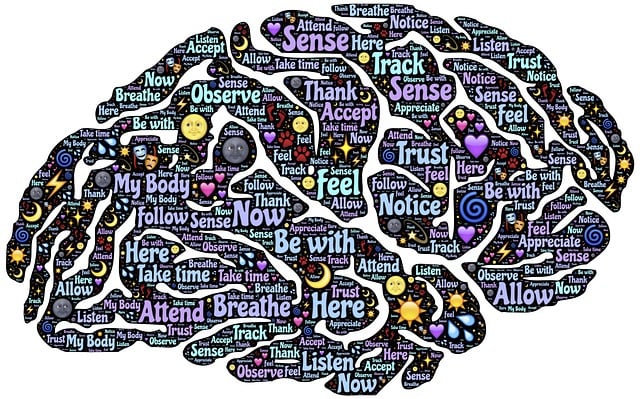Boulder Autism Spectrum Disorder Therapy (BASDT) offers comprehensive crisis intervention tailored to the unique needs of individuals with ASD, leveraging their strengths like detail orientation and literal thinking. They employ evidence-based practices, structured routines, visual aids, and clear communication strategies to create safe spaces and build confidence. Post-crisis support includes holistic techniques such as Compassion Cultivation, trauma processing, and relationship development to enhance emotional well-being and foster resilience, empowering individuals with ASD to lead confident and adaptive lives.
In the realm of mental health support, crisis intervention plays a pivotal role, especially for individuals on the Autism Spectrum Disorder (ASD) spectrum. This comprehensive guide explores essential strategies tailored to navigate and mitigate crises effectively. From understanding the unique challenges faced by ASD individuals during crisis situations to implementing effective communication techniques, each step is designed to foster resilience. We delve into post-crisis support mechanisms, offering valuable insights for the Boulder Autism Spectrum Disorder Therapy community.
- Understanding Crisis Intervention for Individuals with Autism Spectrum Disorder (ASD)
- Assessing the Unique Needs of ASD Individuals in a Crisis Situation
- Effective Communication Strategies for Intervening with ASD Individuals
- Post-Crisis Support and Building Resiliency in the ASD Community
Understanding Crisis Intervention for Individuals with Autism Spectrum Disorder (ASD)

Crisis intervention is a critical aspect of supporting individuals with Autism Spectrum Disorder (ASD), who may experience unique challenges when facing traumatic or stressful situations. Understanding how to provide effective crisis intervention for those on the autism spectrum involves recognizing their specific needs and strengths. Individuals with ASD often possess exceptional attention to detail, literal thinking, and strong memory, which can be leveraged during interventions. For instance, structured and predictable routines, visual aids, and clear communication strategies can significantly boost their confidence and self-esteem in crisis scenarios.
Boulder Autism Spectrum Disorder Therapy emphasizes the importance of early intervention and tailored support. By creating safe spaces and implementing evidence-based practices, therapists help clients develop coping mechanisms and enhance their mental health awareness. The goal is to empower individuals with ASD to navigate crises independently, fostering a sense of self-assurance and resilience. This approach not only addresses immediate crisis situations but also contributes to long-term mental well-being and improved life skills.
Assessing the Unique Needs of ASD Individuals in a Crisis Situation

When addressing a crisis with individuals on the Autism Spectrum Disorder (ASD), it’s crucial to recognize and assess their unique needs. Beyond the immediate emotional or physical crisis, ASD presents distinct challenges that can impact how an individual responds during a crisis situation. For instance, sensory sensitivities could be exacerbated by the environment, affecting their ability to process information clearly. Communication styles may also differ; some individuals with ASD might struggle to express their feelings verbally or may interpret language literally, requiring therapists and caregivers to adapt their approach accordingly.
Boulder Autism Spectrum Disorder Therapy emphasizes the importance of tailoring interventions to each individual’s needs. This includes incorporating strategies that promote positive thinking and resilience, as these Mind Over Matter principles can be powerful tools in managing crises. Cultural sensitivity in mental healthcare practice is also key; understanding and respecting an individual’s cultural background ensures interventions are not only effective but also respectful and affirming.
Effective Communication Strategies for Intervening with ASD Individuals

Effective communication is a cornerstone of crisis intervention for individuals on the Autism Spectrum Disorder (ASD) spectrum. Professionals in Boulder Autism Spectrum Disorder Therapy employ tailored strategies to ensure clear and empathetic engagement during high-stress situations. This may involve adopting simple, direct language, offering visual aids or structured schedules, and actively listening for non-verbal cues.
Understanding the unique communication styles of ASD individuals is crucial for preventing burnout among interventionists while fostering effective support. Techniques such as mindfulness practices and stress reduction methods are integrated into crisis interventions to help both the individual and caregiver manage intense emotions. This holistic approach aligns with broader mental health policy analysis and advocacy efforts, aiming to create more inclusive and supportive environments for those on the ASD spectrum.
Post-Crisis Support and Building Resiliency in the ASD Community

In the aftermath of a crisis, providing post-crisis support is an essential step in helping individuals with Autism Spectrum Disorder (ASD) rebuild and recover. Boulder Autism Spectrum Disorder Therapy offers specialized services to address the unique needs of this community. The goal is not just to return to pre-crisis functioning but to foster resilience and enhance overall emotional well-being. Through evidence-based practices, such as Compassion Cultivation Practices, individuals learn to navigate challenging situations with increased self-compassion and a sense of inner strength.
Building resiliency involves teaching practical skills and strategies to manage stress, regulate emotions, and promote positive coping mechanisms. Emotional Well-being Promotion Techniques are tailored to help ASD individuals process trauma, develop healthy relationships, and enhance their overall quality of life. By nurturing inner strength and resilience, Boulder Autism Spectrum Disorder Therapy empowers individuals to lead fulfilling lives, ensuring they have the tools to navigate future crises with confidence and adaptability.
In addressing crisis intervention strategies for individuals with Autism Spectrum Disorder (ASD), a tailored approach is essential. By understanding the unique needs and challenges of those on the spectrum, we can effectively assess and communicate during crises, providing much-needed support. The Boulder Autism Spectrum Disorder Therapy community emphasizes post-crisis care and resilience building, ensuring that individuals with ASD and their families receive comprehensive guidance to navigate and overcome difficult situations. This holistic approach empowers both the affected individual and the community at large.














